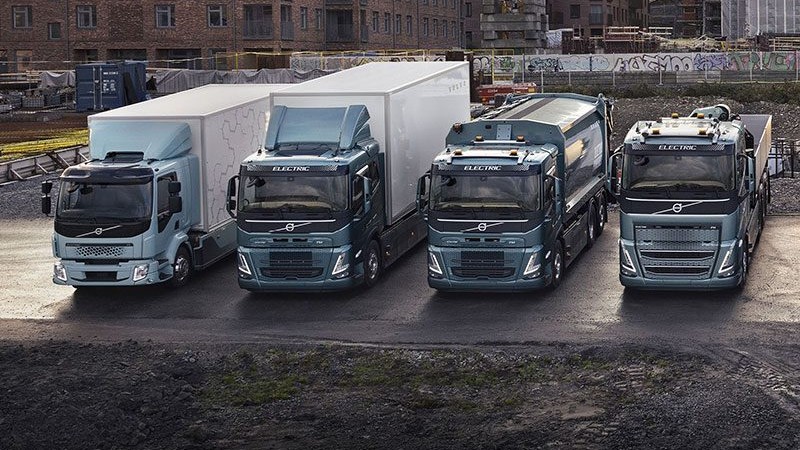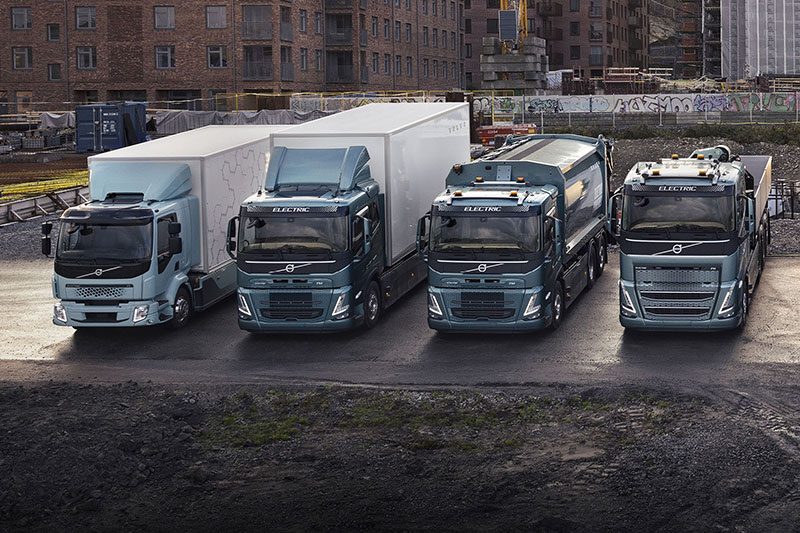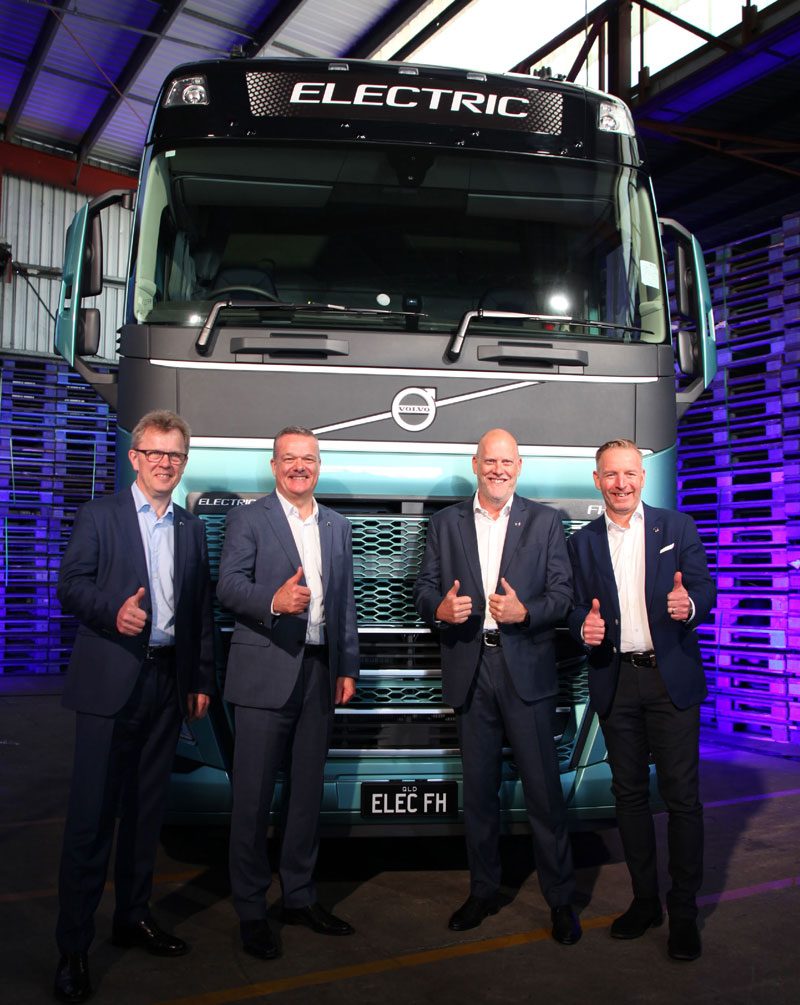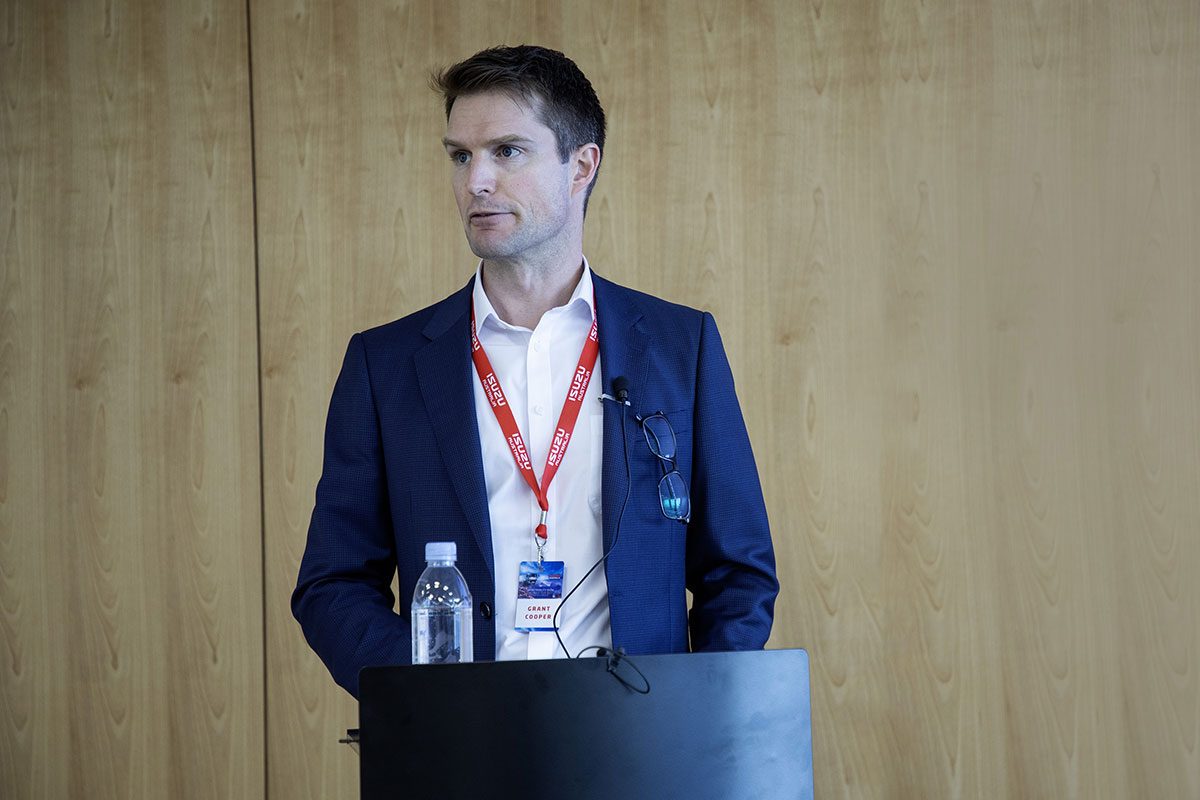
Since the latter half of the 2010s, Volvo Group has been on a charge to develop and implement a full range of battery-electric trucks while simultaneously investigating other forms of alternative propulsion technology. With the EV range now complete, Volvo Group Australia has wasted no time ith a local introduction.
Traditionally held ahead of the Brisbane Truck Show, the 2023 Volvo Group Australia Sustainability Summit was a double-highlight event. On the back of last year’s celebrations for its 50th anniversary of truck production in Australia, the VGA team was celebrating having just handed over the 75,000th truck produced at its Wacol facility and delivered locally – an FH16 700 tractor unit for long-standing customer, Hills Tankers.
“With this truck, VGA has demonstrated that automotive manufacturing is alive and well in Australia. Our Wacol plant has been operating since 1972, and it’s earned us a place in the Australian Made campaign – we’re proud to say that every Volvo we build carries the iconic green-and-gold Australian Made logo,” said Gary Bone, vice president Volvo Group Australia.
“The plant operates without any government subsidies and supports 1500 staff and approximately 85 local suppliers, delivering more than 3500 different components.
“When we built our 60,000th truck in 2017, we said we were here to stay. Here we are six years later, and we’ve produced 25% of that number again. Given the economic conditions we’ve experienced in that time, that’s nothing short of phenomenal,” says Bone.


With orders extending well into 2024, VGA has now set its sights on the future, introducing Volvo’s line-up of heavy electric models. The FH Electric debuted at the summit, with the FM Electric following at the Brisbane Truck Show – these being the first two heavy electric Volvos to land in the region. The FMX Electric can be ordered and will be available as a prime mover.
Martin Merrick, president Volvo Group Australia, says customers are already latching on. More than 80 orders are in the pipeline for EVs, with the first vehicles delivered. At the end of 2022, the largest order for the lighter FL Electric in the world was made by Team Global Express. At the Brisbane Truck Show in May, the first order for a 6×4 FMX Electric heavy-duty prime mover was placed by the Queensland Fire and Emergency Services.
VGA intends to build the FH and FM Electric at the Wacol plant by 2027. All 11 dealer partners within Australia and New Zealand will be EV-certified.
Bone says VGA is poised to support customers with the transition. “The electric ecosystem is all about connectivity. Our ICE trucks are the most connected in the market, and we’ve enhanced that for our EVs. We’ll be able to run route simulations for every truck in a fleet to ensure it returns home with plenty of energy to spare. We want to remove ‘range anxiety’ from the dialect. Financial services and R&M are also lined up.” With an expected six to eight years in the average fleet, every electric Volvo will have full R&M for up to eight years.
Merrick says VGA’s ambition is to reduce emissions by 50% by 2030.
“Thirty-five per cent of freight in Australia is covered in urban areas, perfect for EVs. Charging is not the barrier we have right now… The barrier right now is legislation. If we don’t get legislation change, we won’t meet those targets – that’s a concern.
“A recent report made it clear that focusing on heavy-duty trucks gives a better reduction in CO2 emissions – a typical truck produces 111 tonnes per annum compared to 2.84 tonnes of a passenger car. If you electrify 10 urban delivery vehicles, that reduces the emissions by the equivalent of 56 households purchasing an EV.
“We are committed. We strongly urge government at all levels to work together, create a task force and work through this legislation issue now. We have the technology, the factory, dealer network and customers – we are ready,” Merrick reiterates.

Global picture
In Brisbane for the summit and the Brisbane Truck Show, Roger Alm, president and CEO Volvo Trucks, and Per-Erik Lindstrom, senior vice-president Volvo Trucks International, discussed Volvo’s current global position.
Since beginning serial production of the FE and FL Electric in 2019 and the FH, FM and FMX in September 2022, Volvo has sold more than 5000 electric trucks to about 1000 customers across 40 countries.
“Our ambition is for 50% of our global volume sold to be battery or fuel cell by 2030. By 2040, we aim for all trucks sold to be net-zero emission trucks,” says Alm. “This is necessary to meet the Paris Agreement. It’s a very ambitious target, but we are investing heavily to be a leader in the transformation.”
The move to electric goes beyond just the product and customer operations. Says Alm: “We welcome further cooperation with other companies to roll out charging infrastructure, as we’ve done in Europe and the US.”
There’s also a plan for aged batteries. “We will buy back batteries from customers to put into second-life use. We believe there will be a good future business using them in power banks, which we will operate with Volvo Penta – for example, in countries where power production is a problem.”
While battery technology develops, Volvo is also pushing forward with the development of its e-axle technology. It’s also targeting the end of the decade for serial production of hydrogen fuel cells, being developed through the Cellcentric joint venture with Daimler. (Detailed in the May 2023 issue.)
“There’s no silver bullet solution. We have 13000 engineers working daily to find solutions for the future, and we have the financial muscle to work with the different solutions (including internal combustion and renewable fuels),” says Lindstrom.
He sums up: “We feel extremely confident. We’re prepared to increase production volume big time for all the solutions we have, including internal combustion.”
Read more
Road to Zero Isuzu styles
0 Comments6 Minutes
Ready for the harvest
0 Comments12 Minutes
Toby McLean
0 Comments2 Minutes





